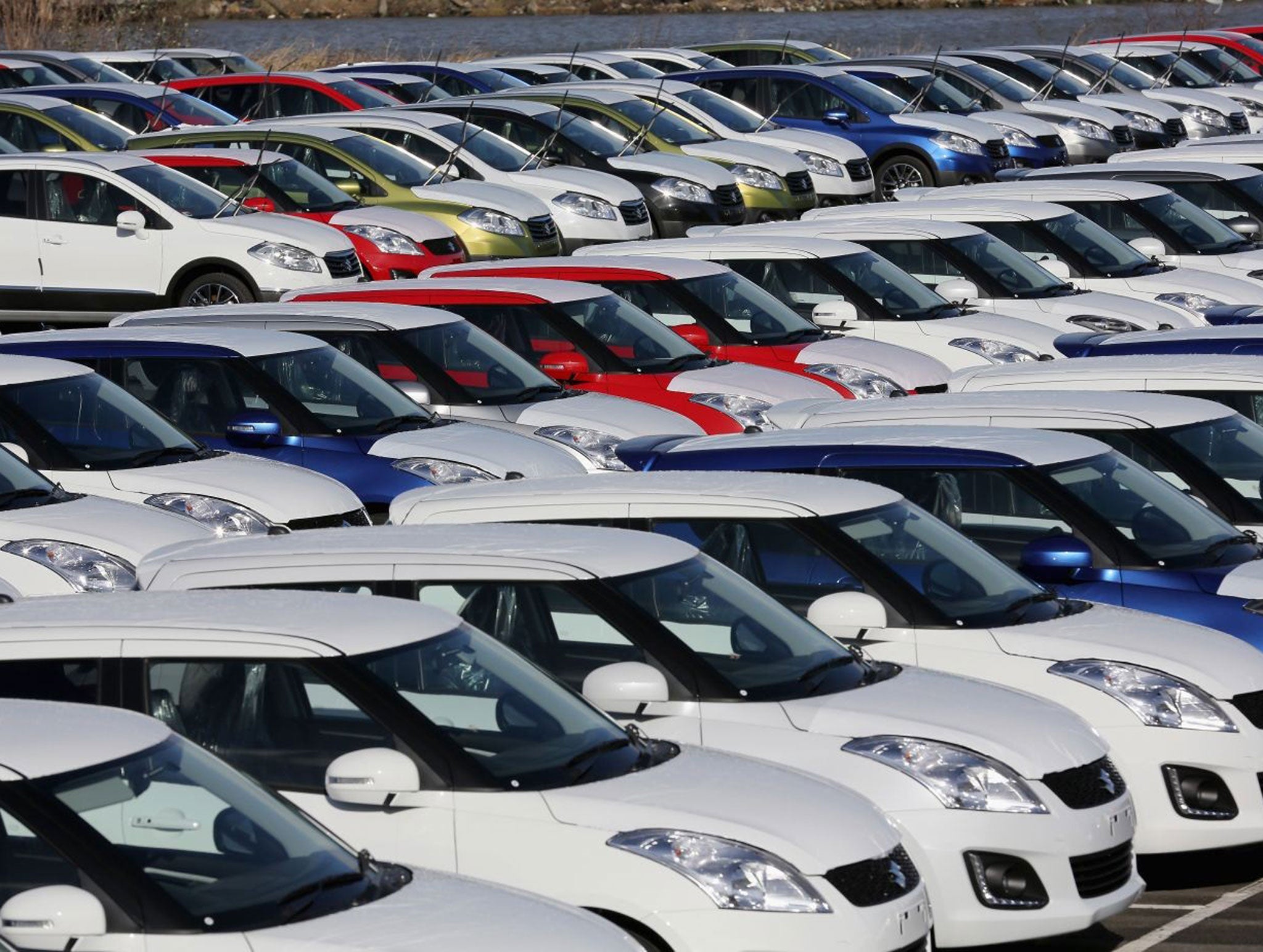Car finance options: Best way to buy a 65 plate
Sales could find another gear as the '65' registration hits the forecourts next week. Rob Griffin looks at the finance options

Record numbers of new cars have been sold this year, but the biggest issue facing would-be owners is deciding how to finance their purchase.
There were 1,376,889 cars registered between January and June – 324 more than the previous best first half, in 2004, according to the Society of Motor Manufacturers and Traders. The boom has been attributed to a combination of low interest rates, attractive finance deals, and fierce competition between dealerships.
According to Ian Crowder at the AA, people are becoming increasingly confident about using either a personal loan or finance arrangement with the dealer. "There are bargains to be had on the forecourt," he said "People have better job security and the economy is improving, so they feel more optimistic about taking out credit."
So if you want to be behind the wheel of a brand new vehicle with a 65 plate from next week, what are your options?
Borrowing from friends or family
If you know someone who can lend you the money either free of interest or at a very low rate then clearly that will be the kindest option for your wallet. Bear in mind, however, that plenty of friendships have been destroyed and family rifts created over money.
Loans and credit cards
If you can get a decent interest-free period on new purchases – and you can either clear the debt or switch it to another card at the end of the term – then a credit card might be worth considering, depending on whether the issuer grants you a large enough limit.
Meanwhile there has been a surge in rate cuts in the loans market, according to Rachel Springall, finance expert at the data provider Moneyfacts, with leading deals of around 4.4 per cent – compared with the market average of 8.4 per cent APR. She cautioned, however: "Headline-grabbing loan rates are designed to attract new customers, but borrowers should keep in mind that most [of the attractive] rates focus on loans of £7,500 or more.
"Advertised rates are given to only 51 per cent of applicants, so you are not guaranteed the best deals."
In any case, she added, a loan might not be needed. "If people need to borrow only a small sum, such as £3,000, they could be wasting their money on the interest. They might find that by using a credit card offering 0 per cent interest, and sticking to set monthly repayments, they will clear debts faster."
Car finance agreements
Dealers will make some form of finance arrangement available – including 0 per cent offers – but it's important to understand how they work before you decide whether they will meet your needs.
The first type of deal is hire purchase, a simple form of finance secured on the car. "You pay a deposit and then repay the balance, plus interest, over the loan period," explained a spokesman for the consumer group Which?
There are also administration fees and it's worth noting that until the final payment has been made, you won't own the car – or be able to sell it, unless the lender agrees. "However, if the car goes wrong during the loan period, the lender is jointly responsible with the dealer for fixing it."
Then there are 0 per cent finance deals. You often find these are offered on cars that a dealer is looking to shift, especially models that are about to be superseded.
While tempting, you need to consider that they will require a large deposit (often in excess of 30 per cent), while any missed payments can result in you being bumped on to a higher interest rate.
The next option is an arrangement known as personal contract purchase (PCP). "You pay a deposit – around 10 per cent of its value – and then monthly payments for the life of the plan," Mr Crowder explained. "You also agree to look after it and not exceed an agreed mileage. At the end of the arrangement you can either hand the car back, buy the car, or possibly renew the arrangement with the dealer for a new vehicle."
Finally there is a leasing agreement. This is similar to PCP except that you have no option to buy. The cost of the lease will depend on the type of car, length of plan, and agreed mileage limits.
The most important thing to be aware of when taking out car finance is how much it's really going to cost, according to Helen Saxon at the advice site MoneySavingExpert.com. "For this, you need to know the monthly payment you'll be making and whether it is affordable," she said. "You'll also need to know what APR the finance agreement is charging. All agreements need to have this information, so ask if you're not sure."
Would-be buyers also need to watch out for add-ons such as service packages and warranties. "While they can be useful, especially if thrown in for free, don't pay over the odds for them," Ms Saxon added. "You can always shop around for the best deal."
Subscribe to Independent Premium to bookmark this article
Want to bookmark your favourite articles and stories to read or reference later? Start your Independent Premium subscription today.

Join our commenting forum
Join thought-provoking conversations, follow other Independent readers and see their replies